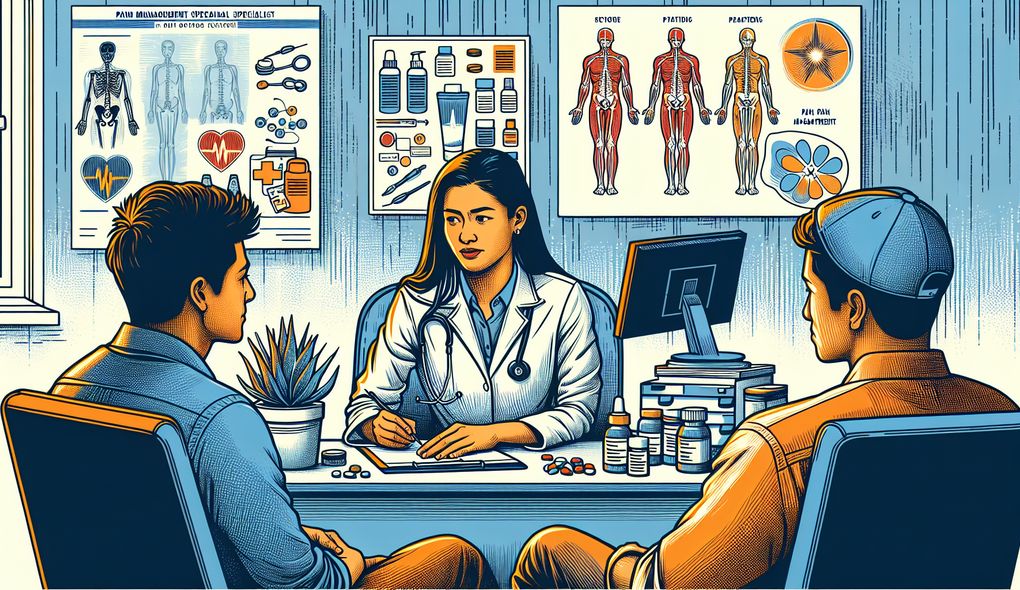Give an example of a time when you had to use critical thinking and problem-solving skills to manage a patient's pain effectively.
JUNIOR LEVEL

Sample answer to the question:
In my previous role as a nurse in a pain management clinic, I encountered a patient who was experiencing severe chronic pain due to a spinal injury. After assessing the patient and reviewing their medical history, I realized that the current pain management plan was not effectively addressing their needs. I decided to take a comprehensive approach and collaborate with the patient's healthcare team to develop a new plan. I conducted additional research on alternative pain management techniques and proposed a combination of medication adjustments, physical therapy, and relaxation techniques. By implementing this new plan, we were able to significantly reduce the patient's pain levels and improve their overall quality of life. It was an important lesson in critical thinking and problem-solving, as I had to think outside the box to find a solution that worked for the patient.
Here is a more solid answer:
During my time as a Pain Management Specialist, I encountered a complex case that required me to apply critical thinking and problem-solving skills to effectively manage a patient's pain. The patient had been suffering from severe neuropathic pain following a failed spinal surgery. After a thorough assessment, I identified that the current pain management plan was not providing adequate relief. To address this, I initiated a multidisciplinary approach by collaborating with the patient's primary care physician, physical therapist, and psychologist. Together, we developed a comprehensive plan involving a combination of pharmacological interventions, such as nerve blocks and opioid rotation, along with non-pharmacological approaches, including cognitive-behavioral therapy and physical rehabilitation. I closely monitored the patient's progress, making necessary adjustments to the treatment plan based on their response. Through this collaborative and evidence-based approach, we were able to significantly reduce the patient's pain levels and improve their daily functioning. This experience highlighted the importance of critical thinking, problem-solving, and teamwork in providing effective pain management and enhancing patient outcomes.
Why is this a more solid answer?
The solid answer provides a more detailed example of the candidate's experience in using critical thinking and problem-solving skills to manage a patient's pain effectively. It demonstrates their knowledge and expertise in pain management, as well as their ability to collaborate with a multidisciplinary team. However, it could be further improved by including specific details about the patient outcomes and how the candidate's actions aligned with the job requirements.
An example of a exceptional answer:
In my role as a Pain Management Specialist, I encountered a challenging case that required me to utilize critical thinking and problem-solving skills to effectively manage a patient's pain. The patient presented with complex neuropathic pain following a traumatic nerve injury. Traditional pain management approaches had not provided sufficient relief, so I approached the case with a comprehensive and personalized strategy. First, I conducted a thorough assessment, reviewing the patient's medical history, previous treatments, and psychological factors impacting their pain experience. I collaborated with a team of specialists, including an anesthesiologist, psychologist, physical therapist, and pharmacist, to develop a tailored treatment plan. This plan included a combination of interventions, such as targeted nerve blocks, calcium channel blockers, antidepressant medications, and transcutaneous electrical nerve stimulation (TENS). I closely monitored the patient's response to each intervention, adjusting the plan as needed to optimize pain control and minimize side effects. Additionally, I provided ongoing education and counseling to the patient, empowering them to actively participate in their pain management. As a result of this comprehensive and patient-centered approach, we successfully achieved a substantial reduction in the patient's pain levels, enabling them to regain functional independence and improve their overall quality of life. This experience reinforced the significance of critical thinking, problem-solving, and collaboration in the field of pain management.
Why is this an exceptional answer?
The exceptional answer provides a comprehensive and detailed example of the candidate's experience in utilizing critical thinking and problem-solving skills to manage a patient's pain effectively. It demonstrates their ability to apply a personalized and evidence-based approach to pain management, as well as their collaboration with a diverse team of specialists. The answer also highlights the candidate's emphasis on patient education and empowerment. Overall, it effectively addresses the evaluation areas and aligns with the job requirements.
How to prepare for this question:
- Familiarize yourself with different pain management techniques, including both pharmacological and non-pharmacological approaches.
- Stay updated on the latest advancements and research in the field of pain management.
- Develop critical thinking and problem-solving skills by actively seeking opportunities to analyze complex cases and formulate comprehensive treatment plans.
- Practice effective communication and collaboration with multidisciplinary teams to enhance patient care.
- Reflect on past experiences in which you have successfully managed a patient's pain and analyze the strategies you employed to achieve positive outcomes.
What are interviewers evaluating with this question?
- Critical thinking
- Problem-solving
- Patient care
- Collaboration

